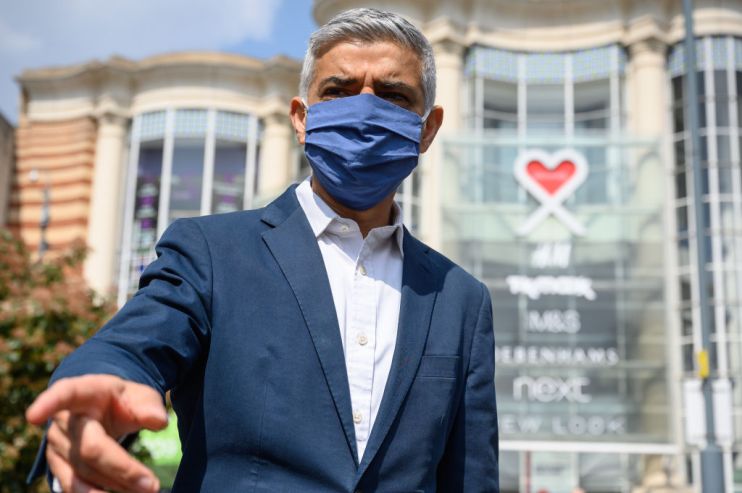London Mayoral elections: Whoever wins, scratchy relations with Downing Street must be mended to fight for the capital

The Covid crisis has laid bare some of the UK’s harshest inequalities, nowhere more starkly
than in London. East London boroughs have seen some of the highest death rates in the
country, and London’s unemployment rate has soared. But other boroughs have some of
the country’s lowest death rates, and the city that has lost most jobs has also sustained
most economic output through the crisis.
This will not come as a surprise to people who live and work in the capital. They see every
day London’s uneasy mix of economic vitality and intense deprivation, its high salaries and
prohibitive housing costs, its globally-renowned universities and persistent child poverty.
Does Government see this or care about it? Levelling up rhetoric from Whitehall has
been accompanied by a series of measures apparently designed to do the capital down. The
abolition of duty-free shopping will hit London’s struggling retailers and tourism industry
when both need urgent support. The Levelling Up Fund announced in the Budget largely
ignores the poorest parts of the capital. Covid support to Transport for London has been
much more grudging and much less generous than to national rail operators. And removing
the London weighting from university funding risks damaging a sector that is a mainstay of
the UK’s soft power and one that generates £25 billion in exports every year.
Alongside these measures, personal relationships between Prime Minister Boris Johnson
and current Mayor Sadiq Khan have been scratchy at best. The PM has sought to blame the
Mayor for Transport for London’s financial crisis, and the Mayor has been vocal in criticizing
the Government’s handling of the coronavirus crisis and of Brexit before it. The postponed
mayoral election has made matters worse, as it has stretched the usual campaigning
hostilities out over a whole year. Disagreement has dominated media coverage, which can
only destabilise London’s and the UK’s position.
But, once we get past 6 May, London’s next Mayor and the Government will be stuck with
each other for the next three years, a period when repairing the social and economic
damage done by the pandemic needs to be at the forefront of all politicians’ minds. London
needs to be at the heart of recovery planning.
Before the crisis, London was home to around 13 per cent of the UK population, but accounted for more than 25 per cent of the UK’s economic output, and generated £40 billion more in taxes than it spends on public services. The capital is the UK’s gateway to the world, its first port of call for tourists, students and investors, and a city whose reputation globally remains high, despite the turbulence of Brexit and coronavirus.
We don’t yet know quite how deep or long-lasting the damage done by coronavirus will be.
But it would be disastrous for the whole country if government turned its back on London’s
needs, and by action or inaction undermined the capital’s ability to power the UK’s
recovery. London will need government investment in transport and in housing, and
support for skills and the transition to zero carbon. It will need Government and the Mayor
to work together to open the capital up to investment and to tourism, to help all its citizens
to make the most of opportunity, and to make sure the benefits of London’s recovery can
be seen across the country.
The Mayor of London has an electorate of five million people, one of the largest in the
world. This gives them a powerful mandate to speak for their city, to articulate its potential,
and to work with national government to enable its recovery. There will inevitably be
moments of tension or disagreement between Mayor and Government, but these should
not distract from a shared and clearly expressed commitment to the capital’s future. To
back the UK’s recovery, Government needs to back London’s.